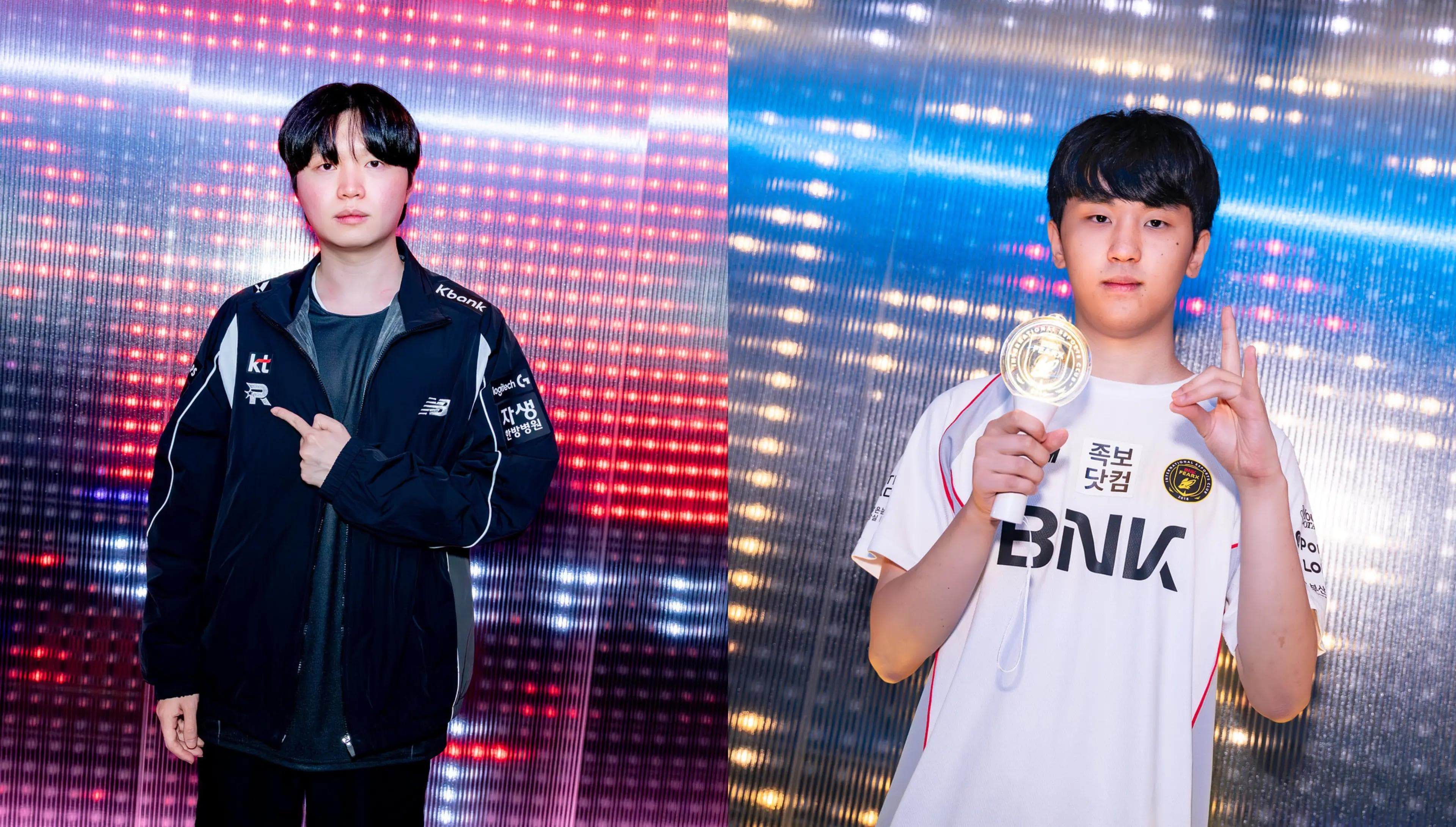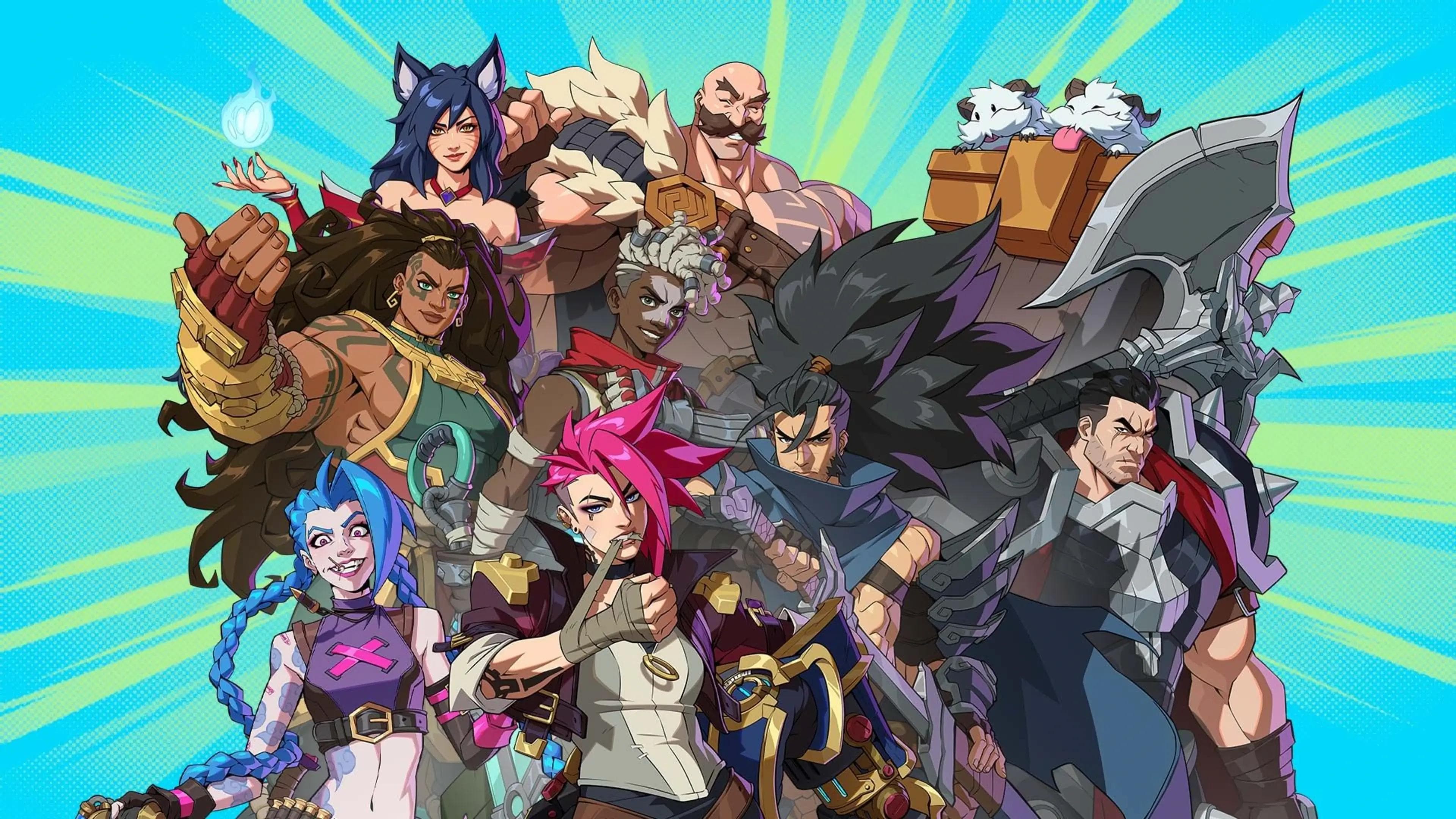"They were scared for their life, and they know what’s coming. They know they’re screwed. Good luck. You have one week"
Continuing their rampage, Karmine Corp advances to the semifinals with a 3-0 victory over Fnatic, aiming to take revenge on their Spanish rivals, Movistar KOI. Riding strong momentum, the Blue Wall now stands on the brink of qualifying for the Mid-Season Invitational (MSI) while also hoping to defend their League of Legends EMEA Championship (LEC) title. In an exclusive interview, one of the team’s coaches, Žiga "Apples" Jereb, discusses the recent win over Fnatic, training Vladi to become one of the league’s top midlaners, KC’s coaching philosophy, and the squad’s future.
You tweeted about preparing your players to "shit on Fnatic." I imagine it must feel pretty good to deliver such a convincing win—especially after yesterday’s shakier series against Heretics, right?
Žiga "Apples" Jereb: "The difference was that Heretics are a team we’ve barely ever scrimmed. They also hadn’t played for weeks, so all the information we had was from external scouting. It was genuinely harder to play against them than against a team like Fnatic, who we scrim with daily. For today’s match, our prep was basically: “Here are four ways they can get ahead. If they don’t, you’ll be the better team in teamfights.” I talked with Reha (Rehareha Ramanana), and we just knew it came down to the drafts. Everyone was locked in today.
You were very open on Twitter about feeling responsible for the loss to MKOI. Now we're seeing a much more stable version of KC. What do you take away from this best-of-five against Fnatic? Are there still things to learn from it?
Apples: This week of scrims wasn’t about what we could learn in-game. Without going too in-depth, I’ll just say it was about being the team we are in scrims at all times. Everyone had to hold themselves accountable. The main takeaway was: if you think something is good or bad, just say it. Everyone needs to be on the same page. Usually, scouting just highlights good or bad habits. But this week, it was more like: “They do this, so you can respond like this. If we can do X, you can do Y.” I gave them examples of how we respond to situations, instead of just calling things good or bad.
You mentioned accountability earlier—has there also been a change in mood or behavior behind the scenes? Before playoffs, KC came in with a lot of confidence. From the outside, the loss to MKOI might’ve looked like a reality check—did it make you reflect and maybe approach things with more respect for your opponents?
Apples: Well, Yike (Martin Sundelin) had that one interview where he was just being honest. What he said was true. We should have won that match, especially if you looked at our scrim results. If we had a 40–50% win rate in scrims, like the other teams, and then said that, then yeah, we’d be lying to the public—like other teams do. But that’s not what happened here. He was just confident, and at least he said it before the match, you know?
Even the thing I posted with my presentation—I wouldn’t have posted it if it wasn’t part of my scouting. We don’t talk shit after games, unless other teams provoke us, just like Movistar KOI did last time. Everyone here is aware of their job. From Reha to Targamas (Raphaël Crabbé) and Yike, everyone brings a lot of experience. We've been telling ourselves the same thing for two weeks straight: the trophy isn’t just given to us. We repeat it every single day. There wasn’t any extra cockiness.
We hadn't lost a scrim block. The way we were winning in scrims—the other teams were really bad. You didn’t get punished in scrims for missing Dragon timers or going too deep in side lanes. The match against MKOI wasn't a mentality or reality check—it came down to gameplay. We got on stage and realized KOI wasn’t really playing with structure—they were just showing up to Dragons and forcing teamfights. Meanwhile, we were trying to play standard macro and set up the game properly.
You’ve played a key role in Vladimiros "Vladi" Kourtidis’s development, especially last year when people pointed out issues in his laning. Can you tell me what it’s been like working with him and helping him grow into one of the league’s top midlaners?
Apples: I'm just gonna say, sometimes I think he forgets that we got him out of the mud, and he’d be unemployed right now if it wasn't for us [chuckles]. But it's a pleasure to work with him—most of the time. There's a mutual respect; we both listen to each other and can admit when the other’s making a fair point. Although sometimes he also goes like, “Hey guys, I’m the challenger midlaner here. I know best.” It's a give and take.
There’s always something new to take away—when it comes to laning phase, vision, voice comms, all of that. Yeah, it was pretty easy to teach him because his mechanics were so insane. And it’s not like I made him what he is today. The biggest thing I honestly did for him—like sure, voice comms and holding him accountable—but the biggest thing was just setting up the in-houses and giving him a way to shine.
I didn’t favor him; he was just always ready. He had the notifications on, he’d see a Chinese or Korean midlaner playing, and he’d instantly appear. I have to expose him though: if the lobby was bad, he’d go like, “I’m not playing, I’d rather go solo queue.” But he was always there first for the good opponents. I believe that experience helped him more than anything I did later for his laning phase.
How does KC balance giving players freedom to make draft choices with maintaining structured team preparation? Is it important to find the right balance between player liberty and team control in drafting?
Apples: We have a great balance. Oftentimes, Wadi (Wadi Benarbia) and I split the work, which helps a lot. If we play two different teams, he will prepare one, while I take on the other. In terms of scouting, I talk to players individually about what the goals for the week should be. But the main people prepping drafts are Reha and Targa. We tell everyone else that if they want more say in the draft, they should come to us—we don’t come to them. Otherwise, they just trust us.
Usually, a day or two before the match, I check in with Reha and ask him to give me a rundown so I can be involved as well. I get most involved when the drafts start or when the series goes deeper. I come up with ideas to make sure we don’t forget anything. For example, today I reminded them about Wukong being open, or even Lucian in game two. That’s not necessarily something you can prep in advance—you have to remember and think in the moment. During the series, everyone will say what they want. Yesterday, Caliste (Caliste Henry-Hennebert) came in and said, “I’m playing Senna game three.” We discussed it and adapted to play a Senna draft for him.
How important is it to prepare many strategies? Has Karmine Corp learned a lot from the two splits and the First Stand tournament? Targamas mentioned that in the First Stand finals against HLE, the team had a perfect game one draft, but then struggled to adapt in later games.
Apples: I wouldn’t say it’s a team thing. It was more that we were limited in terms of gameplay and playstyles. That’s why we were forcing Vi the whole split, along with Sylas and Akali. No one cares if people think this is bad or that we don’t know what we’re doing. We’ll pick Vi and win games—unless everyone is running down Yike. But we need to expand our playstyles and champion pools. Recently, we picked Zoe and people were like, “but Zoe wasn’t the best here.” Sorry, we’ll just play the 50th game of Viktor then. It’s useless. Of course, we learned a lot. We need to expand champion pools and practice playstyles. Otherwise, yeah, we might win one game, but then we’ll lose 1-3. You can win one game, but who cares in the end if you lose the match?
You’ve got your rematch against MKOI coming up—a matchup that likely means a lot to you. How do you feel about it?
Apples: They will cry.
Caliste predicted a 3-0 against Fnatic, and it came true. Will we see the same fate next weekend then?
Apples: We're not even talking shit. It's just like—they were scared for their life. They won, and then they went on pretending like, “oh, we’re so good.” No, they were scared for their life, and they know what’s coming. They know they’re screwed. So, good luck. You have one week.
Do you believe in the lower bracket run again? You’d be facing G2 if you win next, just like in Winter. Can we expect a sweep?
Apples: For G2, I don't know—they played really well. Watching the Fnatic versus G2 series was pretty helpful for our preparation. We knew that Fnatic would play the same way they did against them and try to punish us, they always fall for the same mistakes. G2 is a good team, Caps (Rasmus Borregaard Winther) is back in form, so I'm not going to disrespect them at all. But MKOI is getting cooked.
Do you have anything you want to add to end the interview?
Apples: Boys, about the drafts—nah, I’m just joking. I appreciate all of the criticism and the support. I try to be involved with the community, you know? When you lose a series and open your phone, you'll obviously get bad messages, people @ing you, and you're like, wow, everyone is mad. But then, three days later, you will see 3,000 people actually supporting and Tweeting at you positively, while there are only a hundred guys who were really mad.
I even messaged one of the guys who were really upset at us recently. I wanted to talk to him, because I knew our fans are really invested and get sad when we lose. I was genuinely sorry, and I could see that he had a lot to say. I was in the gym, so I listened to his criticism, you know? We talked it out, he felt better, and I assured him we'd win this week.
Thank you to all the fans—we know you care a lot, and we appreciate it. Every time we play, we remind the players that we’re doing it for more people than just us and the team. And as always, thanks to our sponsors."
Header Photo Credit: Michal Konkol/Riot Games
- Armand Luque -
/Comments
Write a comment






